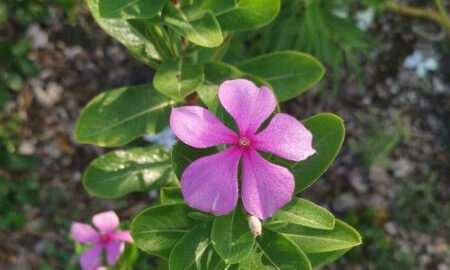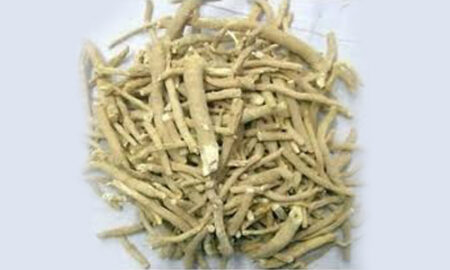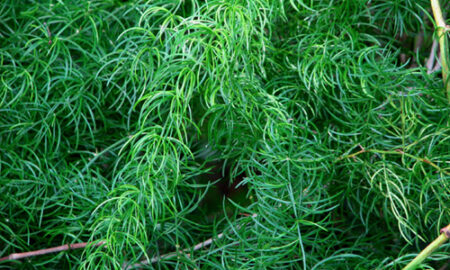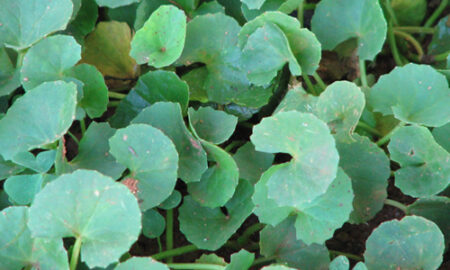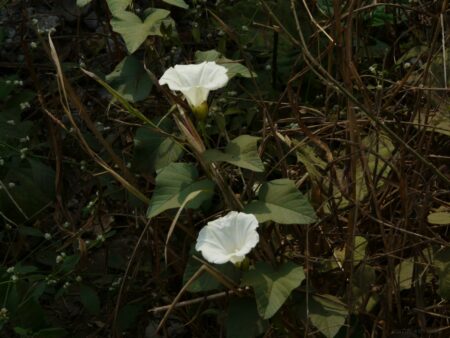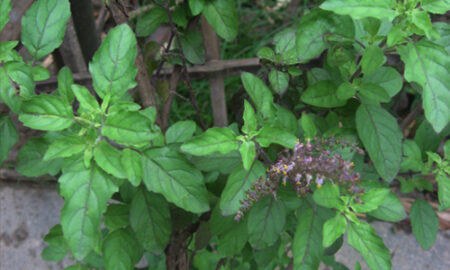Medicinal Plants
-
Sadabihari
Botanical name: Catharanthus roseus
(=Vinca rosea)Family: Apocynaceae Local name: Sadabihari Common name: Periwnkle, Annual vincamudagascar Parts used: Leaf Plant character: It is a perennial herb with milky latex, woody stems, pink or white flowers and elongated fruits. This plant needs lot of sunlight and warmth all-year-round. It is usually cultivated but often run wild as an escape. USES:
Leaves are used to control diabetes. The plant is effectively used as ayurvedic remedy for all sorts of cough aggravating disorders. The leaves offer an ultimate remedy for treating respiratory disorders like asthma, bronchitis, cough and cold symptoms.
-
Sarpagandha
Botanical name: Rauvolfia serpentina Family: Apocynaceae Local name: Sarpagandha, Patalagaruda Common name: The Indian Snake Root Parts used: Root Plant character: It is an erect perennial shrub with pinkish-white flowers and globose black fruits. It can grow well in full sun and in light shade. The roots are commonly harvested from the wild but can be cultivated for commercial exploitation. USES:
The root is used to treat colic pain, blood pressure, skin diseases and snake bite to neutralize the poison.
-
Satabari
Botanical name: Asparagus racemosus Family: Liliaceae Local name: Satabari, Chhatuari Common name: Satavari, Satawar Parts used: Tuberous roots Plant character: It is a spiny climber with linear needle-like leaves and several white tuberous roots. Flowers are white; fruits globose. Commonly wild in dry forests and village hedges. Requires semi bright light to grow. Can be cultivated. USES:
The root decoction enhances lactation, brings down general weakness, fatigue and cough.
-
Thalkudi
Botanical name: Centella asiatica
(=Hydrocotyle asiatica)Family: Apiaceae Local name: Thalkudi, Ghodatapua Common name: Brahma Buti, Gotukola Parts used: Whole plant Plant character: This is a prostate herb, rooting at nodes. Leaves are horse-shoe shaped, fleshy. The plants grow well under shade and muddy soils. It can tolerate heavy shade and periodic inundation. Quite abundant in drying rice fields, ponds, river banks. It is very easy to grow in garden or in a pot. USES:
The plant is used to control inflammation, jaundice, diarrhoea. Leaf paste used as leafy vegetables. The leaf paste also helps in control of hair fall and increases memory power.
-
Tihudi
Botanical name: Operculina turpethum Family: Convolvulaceae Local name: Tihudi Common name: Indian jalap Parts used: Stem bark, Root, whole plant, seeds Plant character: It is a climber with corky bark and white flowers. Usually found in every region of India in forest fringes and village thickets. It prefers shady moist localities. USES:
Stem bark of this plant cures acidity and indigestion. Roots are useful for the treatment of leprosy, paralysis, dropsy, gout,anemia, fever, worm infestation, ascites, inflammation, anemia, liver disorder, splenomegaly, heart diseases, and gas distention in abdomen.
-
Tulasi
Botanical name: Ocimum tenuifolium
(=Ocimum sanctum)Family: Lamiaceae Local name: Tulasi, Tulsi Common name: Holy basil Parts used: Leaf Plant character: This plant is an erect, profusely-branched herb/subshrub with hairy stems. The leaves are aromatic and flowers are blue to violet. It requires almost six to eight hours of sunlight during the day. The major source of Tulsi is from wild habitat but it is also widely cultivated. USES:
Tulasi is considered as a holy plant for Hindus. Leaves are used to cure cold, cough and scabies. It is also widely used as herbal tea. To repel insects, dried leaves of tulasi are used.


